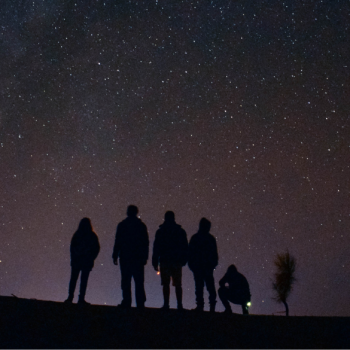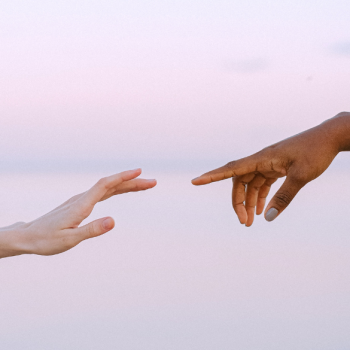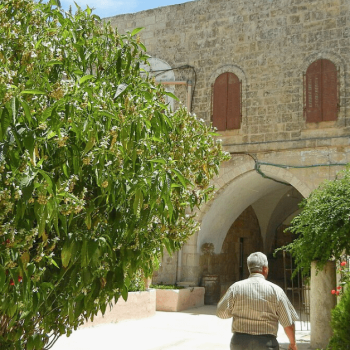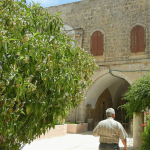It is post-election, November 2024, as I write this with a gray sky outside that is mildly depressing except that we are in a drought right now so the rain is a relief. I feel both less bad and as bad as expected in the aftermath of the election. What I believe is that Harris would have continued to enact horrific policies, and many people will be immediately worse off because of Trump.
So I’m not happy about it. But my focus had already shifted enough before election day that I couldn’t care much more or less about the outcome. It’s the first year I’ve approached enough apathy about the election that abandoning it was tempting. I’m disillusioned with electoral politics, but I trudge along in the sewage anyway.
My relative safety, despite serious concerns arising from financial strain and the long-term impacts of my disabilities, is surely inoculating me. My thoughts on the next four years remain the same in the aftermath: Don’t let anyone skip straight toward discourse on the next election. Do not stay in the vortex of the election cycle.
The way more of us survive the big stuff is by focusing on the everyday aid. It’s known that people worse off give more to charity than those who are more well-off but not so rich that money means nothing. Because we know we have to. Only you know what you can truly give, what you are willing to give, and only you can hold yourself accountable for your choices. The rest of us can’t know, looking in.
I do know that we humans love signals, and the upcoming holidays provide an opportunity to give and reflect on how we give throughout the year.
Hope in Giving
Giving time, resources, or support to others has undeniable benefits for all of us, including those who are doing the giving. Studies show that generosity boosts well-being and self-esteem, and also strengthens community ties–the very community ties we need to rely on when the government continues to fail us. Even acts of service for your most immediate community, friends, family, and neighbors, foster a supportive connection between giver and recipient.
One might say, well, that just sounds like a relationship: yes. Reciprocal relationships are a natural part of humanity for both our emotional and physical health. In the most evolutionary sense, they are an adaptation that keeps us collectively more well off than we are on our own. When we act in thoughtful generosity and expand where we offer it, we also expand our community, growing our circles of connection.
You may be disillusioned with financial giving and individual volunteering. Many have heard, rightfully, the insufficiency inherent to this type of formal charity. The work, ultimately, is misdirected; it does not change the systemic roots of the problems any given charity or organization seeks to eliminate.
Personal actions, too, are inefficient. Accepting personal responsibility for a problem as big as climate change when, as we all know, it is a few companies creating an incredible percentage of the impact, misdirects our attention and makes us feel more effective than we are while companies and shareholders get away with their cash.
Enduring change will involve thoughtful, deliberate action against institutions and structures that are built to enrich a slim few at the expense of all other life, human and otherwise. But daily change, closer communities, and the alleviation of the suffering going on right now within those systems are also needed. We need to watch ourselves take action and build the sense of possibility necessary to bother to act in the first place. Without it we cannot sustain ourselves and each other in the long march ahead.
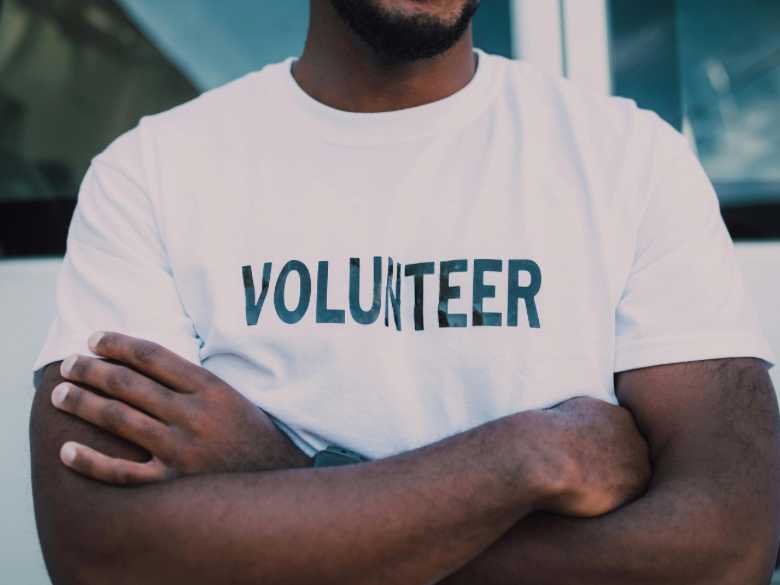
Formal giving and community volunteering can build the relationships and community resiliency that is integral to collective resistance. This is experientially true, and empirically. Systemic support in a community lays the ground for systemic advocacy for that community, for yourself and your neighbors.
History of Giving Tuesday
The history of Giving Tuesday begins with the history of Thanksgiving, which means a history of colonization and genocide of Indigenous peoples. It is a commemoration of a false, sanitizing, revisionist narrative. Around it has spawned a capitalist hell weekend from Black Friday through Cyber Monday and “deals” bombarding your inbox and screens as soon as November hits.
Giving Tuesday refers both to the Tuesday after Thanksgiving and a specific 501(c)(3) nonprofit promoting the concept. The project began in 2012. Among other things, their funds are used to support local nonprofits, as well as campaigns promoting investing time, money, or care for your neighbors and community, specifically on that day and beyond.
Whether involved with the official organization or not, the unofficial “holiday” serves as a day to turn gratitude into local giving. The feeling of gratitude is known to increase charitable giving. Strengthening community ties brings us one step toward the type of world that can erode a colonial mindset. It can be a reminder of what we unrightfully have via colonial history. We can resist the Thanksgiving narrative in placing gratitude for what we have by both good fortune and hard work that has fruited in the context of the stolen soil it has grown in.
If you are not Indigenous to the place you currently live, consider taking the time to provide practical support to the communities displaced from the land you occupy, in the way the tribe prefers, if this is practical. Otherwise, consider financially giving or volunteering with a charity that provides support to the broader Indigenous community.
Where to Give this Giving Tuesday
Find out whose land you are on with Native Land Digital. The website will provide links to organizations associated with the tribe(s), so you can find out more, including their preferred methods of giving.
An organization to consider supporting is the Native American Rights Fund. NARF has provided legal assistance and promoted Native American rights in areas such as tribal sovereignty, treaty protections, and voting rights since the 1970s.
Do not allow yourself to believe this serves some penance or acts as an indulgence. Don’t make the mistake of unloading your spiritual or social baggage–history does not disappear in giving what is materially owed. But this is an opportunity to reflect on the material reality of the past and the present that it created, one constantly perpetuated, cycling forth. It’s an opportunity to connect what you know to what you do.
My faith leads me to believe that the most perfect world is one that can only be built on community, reflection, and self-correction. Gratitude knows what you have and appreciates whatever it is, giving is what builds our community, and reconciliation with God means stepping toward restoration without the illusion that the past is anything but a cycle to break; it is not a stain that can be cleansed. Any reclamation of my ancestral pagan practices must confront the reality that my family left the land that built those practices as it was stolen, for personal safety in land that itself was stolen.




